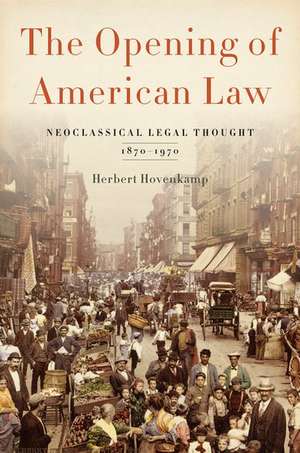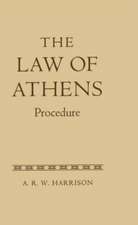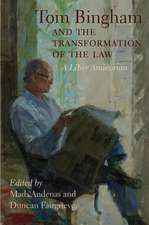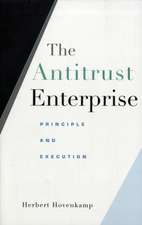The Opening of American Law: Neoclassical Legal Thought, 1870-1970
Autor Herbert Hovenkampen Limba Engleză Hardback – 13 noi 2014
Preț: 442.31 lei
Preț vechi: 572.85 lei
-23% Nou
Puncte Express: 663
Preț estimativ în valută:
84.64€ • 90.51$ • 70.57£
84.64€ • 90.51$ • 70.57£
Carte tipărită la comandă
Livrare economică 07-12 aprilie
Preluare comenzi: 021 569.72.76
Specificații
ISBN-13: 9780199331307
ISBN-10: 0199331308
Pagini: 472
Dimensiuni: 165 x 240 x 36 mm
Greutate: 0.76 kg
Editura: Oxford University Press
Colecția OUP USA
Locul publicării:New York, United States
ISBN-10: 0199331308
Pagini: 472
Dimensiuni: 165 x 240 x 36 mm
Greutate: 0.76 kg
Editura: Oxford University Press
Colecția OUP USA
Locul publicării:New York, United States
Recenzii
The main reason why I found The Opening of American Law fascinating and worth reading is that it clearly demonstrates the strength and resilience of classical political economy in affecting American law, even long after the approach had been challenged, and eventually displaced, by alternative theoretical paradigms.
It is not often that a book offers a broad intellectual history of how the social sciences influence the development of law and legal thought. However, this is exactly what Professor Hovenkamp does in his latest book about the intellectual history of American law. Overall, this book would be a very useful complement to courses on comparative law, antitrust, and law and economics courses.
It is not often that a book offers a broad intellectual history of how the social sciences influence the development of law and legal thought. However, this is exactly what Professor Hovenkamp does in his latest book about the intellectual history of American law. Overall, this book would be a very useful complement to courses on comparative law, antitrust, and law and economics courses.
Notă biografică
Herbert Hovenkamp is the Ben V. & Dorothy Willie Professor of Law and History, University of Iowa, where he teaches antitrust, torts, American legal history, and innovation policy. He has written numerous books in the these areas, and is the author of Antitrust Law, the leading resource in that field. He is a fellow of the American Academy of Arts and Sciences.














